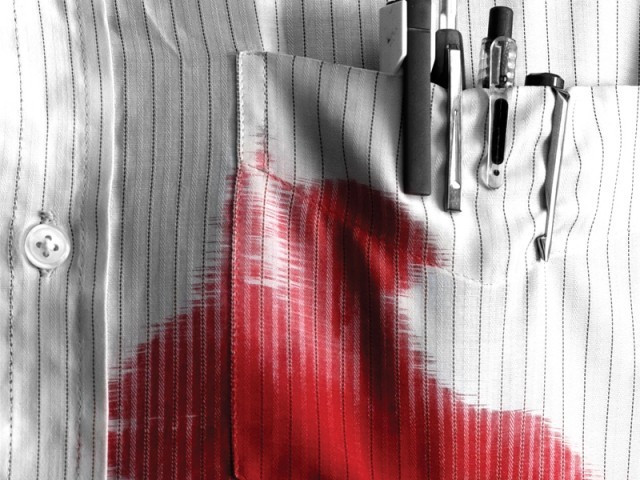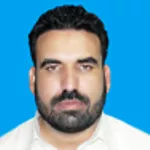Two powerful stakeholders of Fata, the armed forces and the militants, are not happy with the work of tribal journalists. They are constantly warring with each other and each wants the media on its side. In the end, a journalist can report either a factual account and get killed, or craft a vague story and save his skin.
In situations like these, tribal journalists undergo immense pressure. They fear the potential wrath of one party but win support from the other. Usually, their writings miss the main 'who' and 'why' without which a story cannot be complete, accurate or fair. It is not because of their professionalism that they miss these two Ws, but the fear of potential attacks from the above mentioned parties, which force them to drop the essential facts.
Here's why this happens:
According to locals, six people allegedly detained by the army during search operations in the Bara tehsil of Khyber Agency were found dead earlier this month. However, despite knowing all the facts local reporters reported in their daily newspapers that six people were killed by unidentified gunmen. They further said that their bodies were handed over to their relatives by the political administration.This report infuriated the militants of the banned Lashkar-e-Islam, led by Mangal Bagh. One of his commanders contacted the reporters and said everyone in the area was aware that the offence was committed by the armed forces. He also threatened to shoot dead reporters who hid the cruelties carried out by security forces. The commander said that Bagh has already issued directives to 'fix' one of the reporters.
The predicament of the journalist is, thus, clear.
Sometimes, a balanced story is not a viable option for reporters - it is a threat to their lives. Unbiased reporting is often unacceptable to a powerful party because it wants to keep the real facts hidden from people as well as the international community to maintain a "good image". The main difference is that the armed forces don’t convey their anger directly; combatants and insurgents hurl direct threats to journalists when a story offends them.
Earlier in November, a high ranking official of the political administration in Khyber held a meeting with tribal journalists seeking their support for security forces in their operation against militants. The official said that the armed forces were angry with the media for it presented the army as the "cruel party" in the conflict. He said that 18 soldiers were killed and more than two dozen injured in that encounter. But the armed forces were disappointed by the reporting of innocent casualties caused by indiscriminate heavy shelling. I believe they are of the view that they should not be blamed for the death of civilians, as it is a war between the two parties. They also hid the innocent casualties to cover the ineffectiveness of the military operation.
Similarly, the militants publicly executed six people under the charges of adultery, on two separate occasions over the last two months in Tirah valley and the Bara area. The event was covered by tribal reporters as 'six people being killed by unidentified persons for unknown reasons.'
Tribal journalists are forced to present half the picture instead of the whole story. But can we blame them? Why should they express their professionalism by unearthing harsh realities of conflict zones when there is no one to protect them? They have learnt enough from the murders of around dozen of tribal journalists who sacrificed their lives in the line of duty during the last six years. The faceless killers are still at large and the families of slain journalists have stopped seeking justice. These dangerous circumstances do not apply solely to tribal journalists only; reporters in Peshawar also hide judicial killings by the police.
Due to imbalanced reporting, the well informed population of Fata doesn't trust journalists anymore. They openly criticise them for siding with a party without keeping in mind their position. In short, a new form of compromise journalism is taking place in the tribal belt and the adjoining settled districts of Khyber Pakhtunkhwa, which will encourage more extra judicial acts with the passage of time.
In conflict reporting training we are told that no story is worth your life. But the truth is that in an area like Fata, every other story bears the price of your life.
[poll id="105"]
Chronicles from FATA: Your story or your life?
Journalists write a distorted version of events in order to protect themselves from the militants and the military.



COMMENTS
Comments are moderated and generally will be posted if they are on-topic and not abusive.
For more information, please see our Comments FAQ